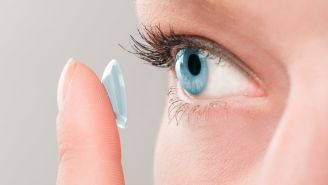Smoking has been linked to a long list of serious health risks, including a higher chance of developing cataracts. But a study found that smokers who kick the habit lower their risk of developing cataracts down the road.
Cataracts are the number one cause of blindness in the world. About half of all Americans who live to be 80 will develop them. They’re caused by protein deposits that build up on the lens of the eye. Over time, they make vision blurry, fuzzy and cloudy. And if you’re a smoker, the process can happen even faster, causing cataracts to hit at a younger age.
Ex-smokers clearly better off
Researchers in Sweden found that middle-aged men who quit smoking can turn that risk around. They followed 45,000 men between the ages of 45 and 79 for several years. The smokers who lit up more than 15 cigarettes a day had a 42 percent higher risk of getting cataracts, compared to men who never smoked.
Men who quit smoking lowered that risk, but not completely. Twenty years after quitting, former smokers still were 21 percent more likely to develop cataracts than were never-smokers.
The study by Orebro University Hospital was published online in the January 2014 issue of the journal JAMA Ophthalmology. Researchers concluded that eye care professionals should join other healthcare professionals to encourage people to stop smoking—or, better yet, never start.
Clearing the fog for better vision
Luckily, there are several steps you can take to improve low vision caused by cataracts. Getting care early is the best way to improve your sight and your quality of life.
- Be sure and visit your eye care professional as soon as you notice blurriness.
- A new prescription for eyeglasses may help improve distance vision.
- Increase lighting at home, especially for detailed work. Put a light behind you, pointed at the task at hand, to avoid glare.
- Surgery is the only way to remove a cataract. It can improve vision for most patients, and is one of the most safe, effective and common surgical procedures.





